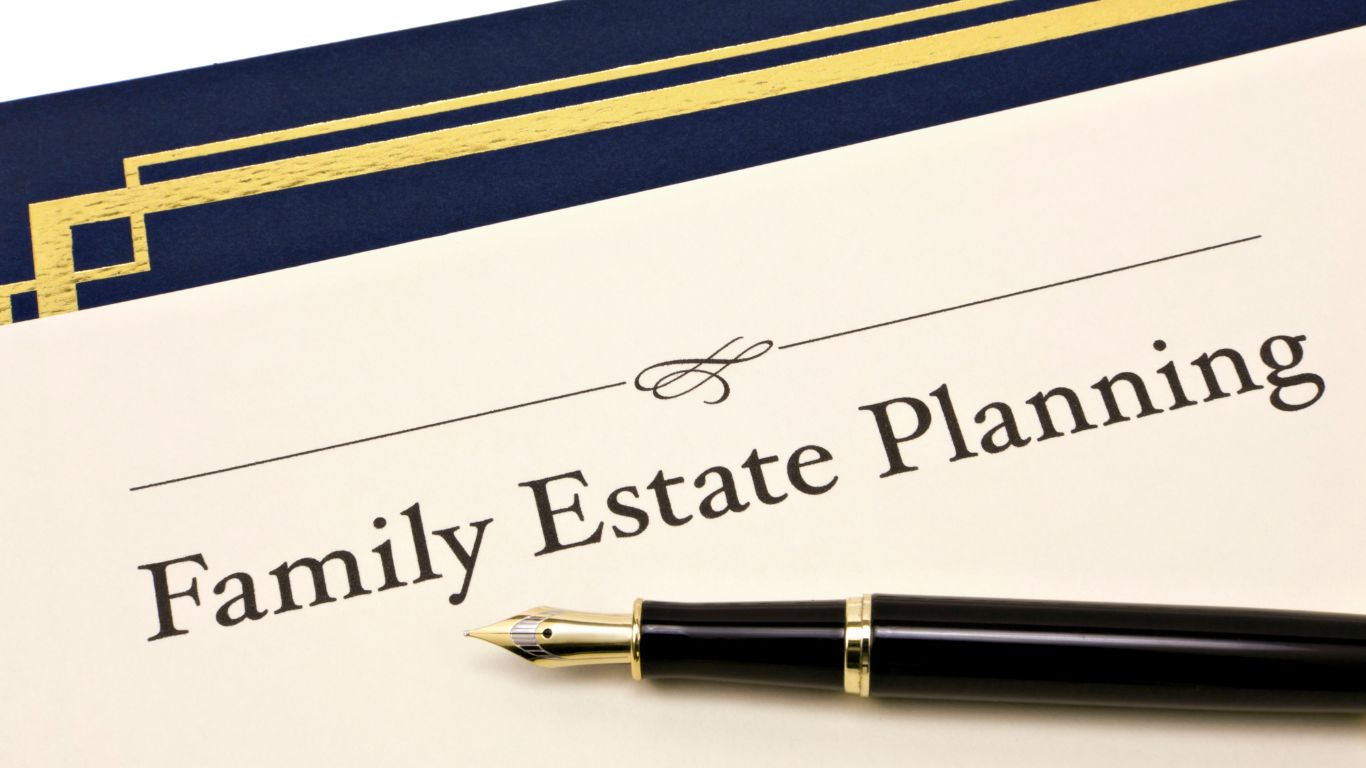Estate planning is a crucial aspect of life that is often overlooked. While DIY projects are becoming increasingly popular, DIY estate planning can include grave mistakes that many individuals tend to make. With the growing accessibility of online resources and guides, it may seem like a cost-effective and straightforward option to create your own estate planning documents. However, the reality is that DIY estate planning can have serious and expensive consequences, and not all DIY estate planning is created equally. In this blog, our San Diego estate planning attorneys will discuss the common mistakes that people make with DIY estate planning and why it is crucial to seek professional help to avoid these errors.
What is a DIY Estate Plan?
An estate plan that is created without the guidance of an estate planning attorney is commonly referred to as a DIY estate plan. When someone decides to create their own legal documents without professional advice, they may resort to options such as handwriting their own will, downloading a pre-made “fill in the blank” document from the internet, or using an online document generation software that asks predetermined questions. However, there are several common mistakes associated with DIY estate plans, especially with DIY routes not directly tied to a partnered Estate Planning Law Firm.
8 Mistakes Associated with DIY Estate Plans
1. Using Forms from the Internet for Estate Planning
Forms available on the internet for estate planning purposes may claim to comply with the law of your state, but that is not always the case. Every state has its own set of laws that apply to estate planning, and there can be significant differences between them. Furthermore, how do you know that the document you downloaded contains everything needed for a competent plan? You simply don’t know what you don’t know and in the world of Estate Planning the knowledge base needed to put together a competent plan based on your goals is vast. Therefore, relying solely on these forms without seeking professional advice can be risky. Furthermore, if you own property in another state or country, the laws in those jurisdictions may be drastically different from your own state, and your DIY estate plan may not fully account for them. Therefore, it is essential to consult with an estate planning attorney to ensure that your plan complies with the relevant laws and regulations, especially if you own property outside of your home state or country.
2. Inaccurate, Incomplete, or Contradictory Information in DIY Estate Plans
DIY estate plans can be problematic as they may contain inaccurate, incomplete, or contradictory information. Even minor errors in the legal language or terminology used in your documents could result in significant legal consequences. For example, using two words like “free of” where “subject to” was actually needed can cause hundreds of thousands of dollars in complications for your family, but most people would not know of the issue lying in their documents until it’s too late. Additionally, creating an estate plan without expert guidance can lead to inconsistencies and contradictions that could make it difficult to administer your estate after your passing. Therefore, it is crucial to work with an experienced estate planning attorney who can help you navigate the complexities of the legal system and ensure that your documents are comprehensive, accurate, and consistent with your wishes. If you do consider using a software based online plan, only consider software that has a direct tie to a named estate planning law firm so that you know these issues are prevented within the questionnaire algorithm and document generation (see Estate Lock for an example of a software based plan that is actually supported by a law firm to avoid these complications).
3. Failing to Consider Changing Life Circumstances in a DIY Estate Plan
One of the major drawbacks of a DIY estate plan is that it may not take into account the changes in your life circumstances that can impact your estate planning needs. For instance, a birth, death, marriage, or divorce in your family could significantly alter your estate planning objectives. Similarly, changes in your financial situation, such as acquiring new assets or selling existing ones, could affect your estate plan. DIY estate plans are typically static and may not account for these dynamic changes, which can result in unintended consequences. To avoid such pitfalls, it is advisable to seek professional advice and periodically review your estate plan to ensure that it accurately reflects your current situation and goals.
4. The Risk of Errors in Executing a DIY Estate Plan
Another significant risk of DIY estate planning is the possibility of errors in executing the plan. Even a minor error in the execution of your estate plan could invalidate some or all of your wishes. For example, failing to sign your documents correctly or not having them witnessed or notarized can render them unenforceable. Additionally, DIY estate plans may not consider the technicalities and legal formalities required for executing your plan effectively or may not guide you on what is specifically required. To avoid such risks, it is essential to work with an experienced estate planning attorney who can guide you through the process and ensure that your documents comply with the legal requirements. A professional can also oversee the execution of your plan to ensure that your wishes are carried out as intended.
5. The Risk of Omitting Assets in a DIY Estate Plan
One of the significant risks of DIY estate planning is the potential for omitting assets from your estate plan. It is essential to include all of your assets in your estate plan to ensure that they are distributed according to your wishes. Failing to account for all of your assets can result in some assets being left out of your plan and distributed in ways that you did not intend. DIY estate plans may not provide adequate guidance on how to identify and include all of your assets, especially if you have complex assets or financial arrangements. Therefore, it is advisable to seek professional help to ensure that all of your assets are accounted for in your estate plan, and your wishes are carried out.
6. Overlooking Future Planning in DIY Estate Plans
People who develop their own estate plan without the guidance of a professional often overlook critical issues that need to be addressed in the future. Estate planning attorneys have extensive knowledge of what people need to plan for, which is often lacking in DIY estate plans. Individuals may fail to consider future scenarios, such as what kind of care they would like to receive if they become mentally or physically incapacitated, how their estate should be distributed if one spouse dies before the other, or which assets pass outside the control of their Trust. Additionally, they may not have a clear plan for handling their debts or the tax implications of their testamentary decisions. These are all important factors to consider when developing an estate plan, and seeking the advice of a professional can help ensure that all necessary issues are addressed in your plan.
7. The Pitfalls of Vague Provisions in DIY Estate Plans
A common mistake that people make when creating their own estate planning documents is failing to tailor them to their unique circumstances. Copying a template from the internet or a form book without adjusting it to your situation can lead to oversights or confusion – this will cost much more to fix in Court than would ever have been spent creating a competent plan out the outset. DIY estate planners often use vague language or incomplete instructions that may cause problems down the road. For instance, if a Will states that a person’s descendants should share in the estate equally but does not clarify whether descendants refer only to their children or include grandchildren, it can lead to discord among family members. Incomplete or ambiguous language in your estate planning documents can lead to misinterpretation or litigation, which can be both time-consuming and expensive. Therefore, it is critical to seek professional guidance to ensure that your estate planning documents are clear and concise, and your wishes are accurately reflected.
8. The Importance of Understanding Asset Distribution in Estate Planning
Many people assume that their trusts or wills control how all of their assets will be distributed after their death. However, this is not necessarily the case. Individuals often hold a significant portion of their wealth in retirement plan accounts or life insurance, which often pass outside of wills or trusts. Wills and trusts generally control real estate and other tangible assets that you own, but certain assets, such as life insurance and IRAs, are not usually subject to probate and are not affected by your will or trust unless you take steps to make it so. As a result, it is crucial to understand how each of your assets will be distributed upon your death and to plan accordingly. Failure to do so can result in unintended consequences or unnecessary expenses, such as probate costs or taxes. Seeking professional advice can help you navigate the complex rules and regulations that apply to various types of assets and ensure that your estate plan reflects your wishes.
The Risks of DIY Estate Planning
While DIY projects can be a fun and cost-effective way to tackle home improvement tasks, the same cannot be said as a blanket statement for estate planning. Estate planning is a complex area of law that requires careful consideration and expert guidance. DIY estate planning can result in inaccurate, incomplete, or contradictory information, potential errors in executing your plan, overlooked future scenarios, and omitted assets.
These risks can lead to unintended consequences, family disputes, and unnecessary expenses. To ensure that your estate plan accurately reflects your wishes and addresses all necessary issues, it is essential to work with an experienced estate planning attorney. A professional can provide you with peace of mind, knowing that your estate will be distributed according to your wishes and that your loved ones will be taken care of in the event of your passing.
What If My Wishes Are Really Simple, Can DIY Ever Work?
Just because DIY is risky and many people fail does not necessarily mean no one should ever DIY, just proceed with extreme caution. If you have a simple estate, simple wishes, and are able to follow through on a guided plan, you may be a candidate for a software based estate plan. Do not physically write your own plan, ever, use a software to do this for you if you are intent on the DIY route.
Not all software based plans are created equal though, and you’ll only want to proceed with a company that has a direct partnership with a dedicated Estate Planning Attorney. Not a software that says it was “created by attorneys” (which one?), but one that was created by a specific attorney or firm, with a name, who is a competent and dedicated estate planning attorney, who will be there to support you should you get stuck along the way or need additional help. If you are interested in this type of plan, the only route we recommend is Estate Lock.
Estate Lock was developed by the attorneys at Jenkins & Jenkins, Estate Planning Attorneys to bring affordable estate planning solutions to everyone while avoiding the issues raised in this article. An Estate Lock plan will prevent you from making the mistakes above, so long as your wishes are simple and you are willing to follow the resources provided.
One of the best parts, you won’t lose your money if you start with an Estate Lock plan and end up needing attorney support. We have clients all the time who start with another software company and it ends up being more than they can handle or they just don’t know how to complete the plan, so they lose their money paid to the software and end up hiring an attorney anyway. If you start on an Estate Lock plan and need attorney support, you can get that directly from Jenkins & Jenkins, Estate Planning Attorneys by only paying for the next level of service offered through Estate Lock. End up needing much more than software can provide for you? Credit your Estate Lock plan towards our fees at Jenkins & Jenkins anytime and we’ll take what you’ve started and customize it to fit your needs.







